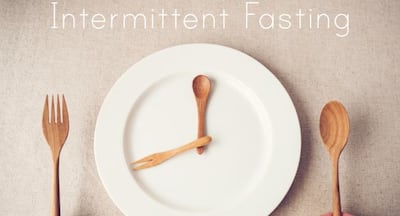Don’t Miss Out on the Latest Updates.
Subscribe to Our Newsletter Today!
5 things to keep in mind if you are opting intermittent fasting for weight loss

There are a lot of evidence and scientific data to suggest that intermittent fasting does improve metabolism and helps in weight loss. No matter which kind of fasting method you choose remember always to do it right to reap the benefits.
Many people are opting for intermittent fasting these days to lose weight. There are a lot of evidence and scientific data to suggest that intermittent fasting does improve metabolism and helps in weight loss. There are ways in which intermittent fasting can be followed: The 16/8 method where one needs to fast for 16 hours and limit food intake to 8 hours of the day; 24 hour fast where one needs to go on a total 24 hour fast and then the 5:2 diet where you consume 500 to 600 calories on two non-consecutive days and eat normally for the rest of the day. No matter which kind of fasting method you choose remember always to do it right to reap the benefits. Here are a few things to keep in mind to do it the right way:
Help your body get used to it: If you are a beginner don't try t exert yourself by going on a 24 hour fast at the start of it. Instead, try a 12 hour or a 16-hour fasting where most of the time will be included in your sleep time to help your body grow accustomed to the new method. When you fast the body turns its fat sources into energy which helps in weight loss. Start slowly so that it doesn't give a sudden jolt to your systems.
Staying hydrated: Drink lots of water and calorie-free drinks, such as herbal teas, fruit and vegetable juices to keep you hydrated and energised so that you can be on track with your fasting. They also help you stay satiated and prevent you from going overbroad with foods once your fasting is over.
Also Read
Plan your day right: If you are a beginner it might take an enormous amount of energy to stop obsessing over food so plan your day well and keep yourself busy during the fasting hours. Like catch up on paperwork or going to see a movie.
Avoid heavy activity: Reshuffle your day to incorporate the fasting hours. Avoid strenuous activities on fasting days like doing heavy weight exercises in the gym or being on the field for work purpose for long hours, although light exercise such as yoga may be beneficial.
Choose the right foods: If your chosen plan of fasting allows you some calories during fasting periods, select nutrient-dense foods that are rich in protein, fibre, and healthful fats. Examples include beans, lentils, eggs, fish, nuts, and avocado. Once your fasting period is over, eat foods that are high in fibre, vitamins, minerals, and other nutrients to keep blood sugar levels steady and prevent nutrient deficiencies. A balanced diet will also contribute to weight loss and overall health.
Eat moderately but eat high-volume foods: Select filling yet low-calorie foods, which include popcorn, raw vegetables, and fruits with high water content, such as grapes and melon.


